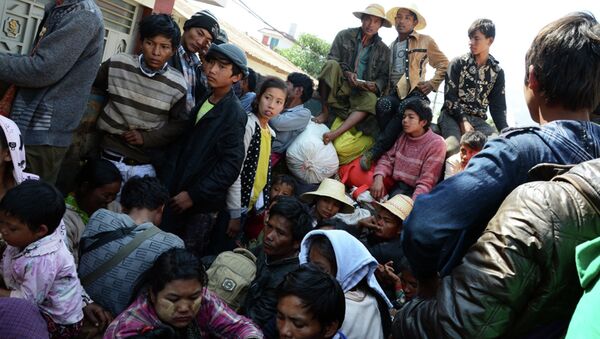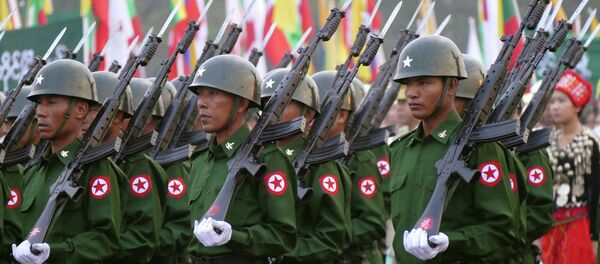"Almost all the [ethnic] Chinese population of Kokang has fled, like I did," a refugee told the publication. Previous reports have stated that over 30,000 have fled.
As of Monday, the Myanmar military is reported to be in control of Laukkai, the capital of the Kokang region, part of Myanmar's Shan State.
The conflict presents a political challenge for China, an ally of Myanmar, which has to deal with the refugee crisis. In addition, Myanmar's government accuses the rebels of hiring former Chinese soldiers as mercenaries, a claim which the rebels deny, accusing the government of using the claim to whip up nationalist sentiment.
According to the New York Times, reports of refugees and casualties from the conflict have been censored, as Chinese social media users have urged the government to intervene on behalf of Kokang's ethnic Chinese population, likening the situation to that of Crimea. Meanwhile, official Chinese media stated that it abhors comparisons to Crimea and opposes the country's involvement in the conflict.
"Peace and stability in the border regions are in China's utmost interest," the Beijing daily Global Times stated in a February 16 editorial. "China should play a role in fostering peace in northern Myanmar and persuading Myanmar government troops and ethnic armed forces to solve the problem through negotiations."
Clashes between the Myanmar government and Kokang rebels began on February 9. Since then at least 50 soldiers and 70 rebels have been killed in the conflict. On February 21, rebels attacked a Red Cross convoy, injuring five people including a journalist from a state television station in the second such attack since February 1.




